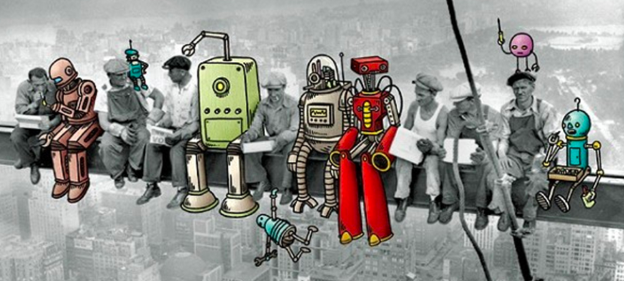For years, you’ve probably heard that robots would eventually replace humans in the workforce. AI has transformed various positions, including the use of self-checkouts, ATMs, and customer care chatbots. The purpose is not to frighten people, but to highlight the fact that AI is continually changing people’s life and carrying out tasks to replace the human workforce. At the same time, technological improvements are creating new job opportunities. AI is expected to enhance professional demand, notably in robotics and software engineering. As a result, AI has the ability to eliminate millions of existing jobs while creating millions more.
One of the numerous concerns raised by AI is the risk of eliminating a major chunk of the human workforce by replacing the need for manual labor. However, it will also free humans from tiresome, repetitive duties, letting them focus on more difficult and lucrative projects or simply take some much-needed time off.
According to McKinsey research, depending on the adoption scenario, automation may displace between 400 and 800 million jobs by 2030, necessitating the relocation of up to 375 million people.
These data can cause people to be concerned about the future. However, history suggests that this is not the case; there is no doubt that some industries will be altered to the point where they will no longer require human labor, resulting in job redefinition and business process transformation. For example, many health difficulties may be efficiently automated, allowing doctors to focus on other critical matters that require their attention. In terms of totally replacing humans, human labor is and will remain necessary for the foreseeable future.
Though the potential of AI is infinite, it is also constrained. While it is obvious that AI will rule the professional world on a variety of levels. However, no matter how smart AI becomes, it will never be able to mimic human awareness, which supports humans’ position at the top of the food chain.
Until now, we’ve been discussing employment that can be taken away as technology progresses, but the human parts of work cannot be replaced. Let’s concentrate on something they can’t accomplish. Some occupations are only capable of being performed by people.
There are jobs that require creation, conceptualization, complex strategic planning, and dealing with unknown spaces and feelings or emotional interactions that are way beyond the expertise of an AI as of now. Let’s now talk about certain skills that are irreplaceable till the human race exist.
1. Empathy : is unique to humans: While some may argue that animals exhibit empathy, they are not the ones taking over occupations. Humans, unlike programmed software designed to provide a specific outcome, can experience emotions. The personal affinity between a person and an organization is the cornerstone of a professional connection, which may appear paradoxical. To create trust and human connection, humans want a personal connection that extends beyond the professional realm, which bot technology absolutely lacks.
2. Emotional Intelligence: While accurate, the AI is not intuitive or culturally sensitive, as these are human characteristics. No matter how precisely it is programmed to perform a task, it lacks the human ability to adjust to the algorithm of human intelligence. For example, reading into a situation or another person’s face. It lacks emotional intelligence, which allows humans to recognize and handle interactions that need emotional communication. During your customer service, a human interaction to read and grasp the situation is always preferable to an automated computer that cannot operate or aid beyond the programming.
3. Creativity: A benefit of being human: Artificial intelligence (AI) can improve productivity and efficiency by eliminating errors and repetition and replacing manual tasks with clever automated solutions, but it cannot comprehend human psychology. Furthermore, as the world becomes more AI-enabled, people will be able to take on more novel tasks.
4. Problem-solving outside of a code: Humans may deal with unforeseen uncertainty by analyzing the circumstance; for example, by using critical thinking in difficult scenarios and employing inventive approaches. Unlike people, which can work in a range of environments and circumstances, AI-powered devices cannot act beyond their function, which may be far in the future but not in the near future.
There is little question that artificial intelligence will not drive the future. Humans must be creative, analytical, and contextually aware in order for AI to work. The reason for this is simple: humans will continue to deliver value that machines cannot.

